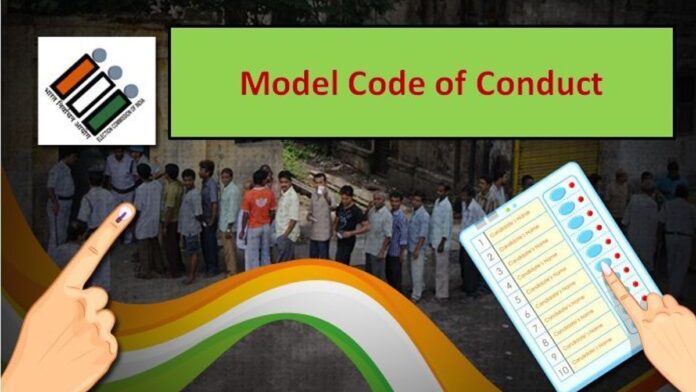The Model Code of Conduct (MCC), known as “आचार संहिता” in Hindi, plays a vital role in ensuring free and fair elections in India. It is a set of guidelines issued by the Election Commission of India (ECI) for political parties, candidates, and governments during the election period. These rules are designed to create a level playing field, maintain order, and prevent any misuse of power that could influence voter decisions.
What is the Model Code of Conduct?
The MCC includes a range of directives, including prohibitions on the misuse of government resources, restrictions on party campaigns, and ethical conduct of candidates. For instance, it disallows the ruling government from announcing new projects or schemes that could sway voter preferences during elections. It also governs the behavior of political parties, ensuring that campaigns remain free from personal attacks, hate speech, or the use of religion for electoral gain.
The code comes into effect the moment elections are announced and remains in force until the election results are declared. This ensures that political parties and candidates adhere to fair practices, preventing undue influence over voters.
Why is it Necessary?
The MCC is necessary to ensure that elections in India, the world’s largest democracy, are conducted fairly. Without such guidelines, ruling parties could misuse their positions of power to gain electoral advantage. The MCC helps maintain public trust in the election process by curbing unethical behavior and ensuring that voters are not unduly influenced by the power dynamics of incumbency.
The Relationship Between Elections and the MCC
The MCC is directly linked to elections because it acts as a safeguard against electoral malpractices. It ensures that all candidates, whether in power or opposition, compete on equal grounds. The Election Commission enforces the code, and any violations can lead to penalties or warnings. The MCC helps protect the democratic process, ensuring elections remain a battle of policies rather than power.
The Model Code of Conduct is essential for maintaining the integrity of elections. By setting guidelines for ethical political behavior, it ensures that voters can make informed choices in a fair and transparent environment.
The Model Code of Conduct (MCC) is implemented during the election period, starting from the date the Election Commission of India (ECI) announces the election schedule. It remains in force until the completion of the election process, which ends with the declaration of results. The MCC applies to both national and state elections, as well as local body elections. Its main objective is to ensure that all political parties and candidates follow fair practices and that the ruling party does not misuse its power to influence voters.
Key Points Included in the Model Code of Conduct
The MCC covers a wide range of aspects concerning political behavior, campaigning, and governmental action during elections. Here are the main provisions:
1. General Conduct:
– Political parties and candidates must not indulge in activities that create tension between different communities or lead to violence.
– There must be no use of caste, religion, or language to gain votes.
– Political campaigns should avoid personal attacks on opponents or malicious accusations.
2. Governmental Restrictions:
– The ruling party or government officials cannot announce new projects, policies, or welfare schemes that may sway voters.
– Government funds and machinery must not be used for electioneering.
– Ministers and officials cannot use official vehicles, government facilities, or their position to campaign for their party.
3. Campaigning Rules:
– Parties must respect the private lives of political opponents and avoid inflammatory rhetoric.
– Public meetings or rallies require prior permission from authorities, and the timing must respect local laws and the convenience of citizens.
– Posters, hoardings, and other election materials cannot be put up without the proper permissions.
4. Election Day Guidelines:
– No canvassing is allowed within 48 hours before the polling day, allowing voters a quiet period to reflect.
– Candidates and parties must respect the secrecy of voting and ensure a peaceful environment around polling stations.
5. Media and Advertising:
– Advertisements in the media, including social media, must adhere to guidelines and should not mislead voters.
– Political parties are barred from publishing or broadcasting paid news.
These rules ensure that the election process is fair, transparent, and free from undue influence. The MCC plays a crucial role in upholding democratic values by creating a balanced field for all political actors and protecting the rights of voters to make their choices independently.
-Sanjana Kumari








